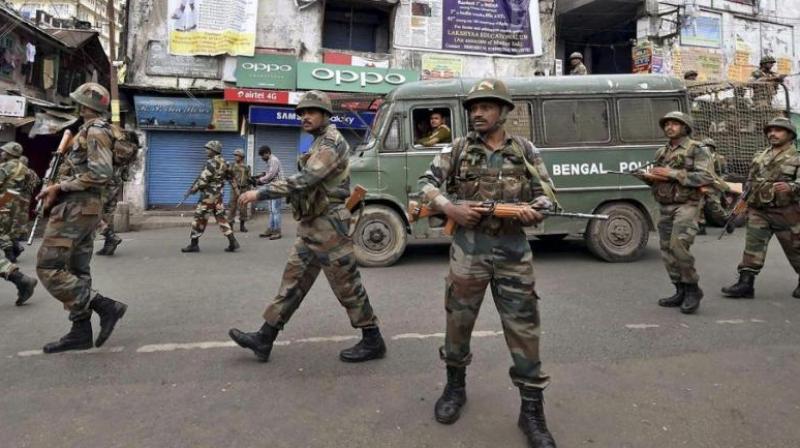Security trumps politics

The Centre’s stand on the use of paramilitary forces in the States has been coloured by politics. The directive from the Home Ministry that central forces should be deployed only in emergencies and not be used as a substitute for the State police comes in the wake of a standoff with the West Bengal government over the deployment of 700 personnel of the Central police battalion in the Darjeeling hill districts to tackle law and order problems arising out of a demand for Gorkhaland statehood.
The Bengal government had to go to the Calcutta high court to let the forces stay on in the hills since the situation has not settled and trouble may erupt if Bimal Gurung of the Gorkha Janmukthi Morcha returns as he has threatened to. The Darjeeling issue is particularly sensitive as the hills are not far from Sikkim and the tri-junction and national security concerns must be the absolute priority rather than Centre-State politics.
The Centre wants a committee in each State to examine requirements and analyse the internal security situation and intelligence inputs before asking for central forces. The Centre is missing the wood for the trees here as no State would want Central forces to be deployed unless the situation is threatening to go out of hand.
Also, to suspect States would like to use paramilitary forces in lieu of local police is to stretch the very concept of cooperative federalism, which should be based on mutual consultation rather than dictated by perceptions ruling in New Delhi.
If there are points to be made about the underutilisation of Indian Reserve Battalions (IRB) and the financial burden to be shared by the States, the Centre should thrash out such matters in coordination meetings at secretary level rather than be politicised by picking on States that may have regional parties ruling them.
National security should trump inter-party politics. India can’t afford to lose sight of that.

